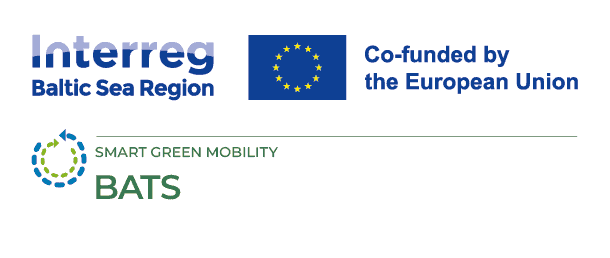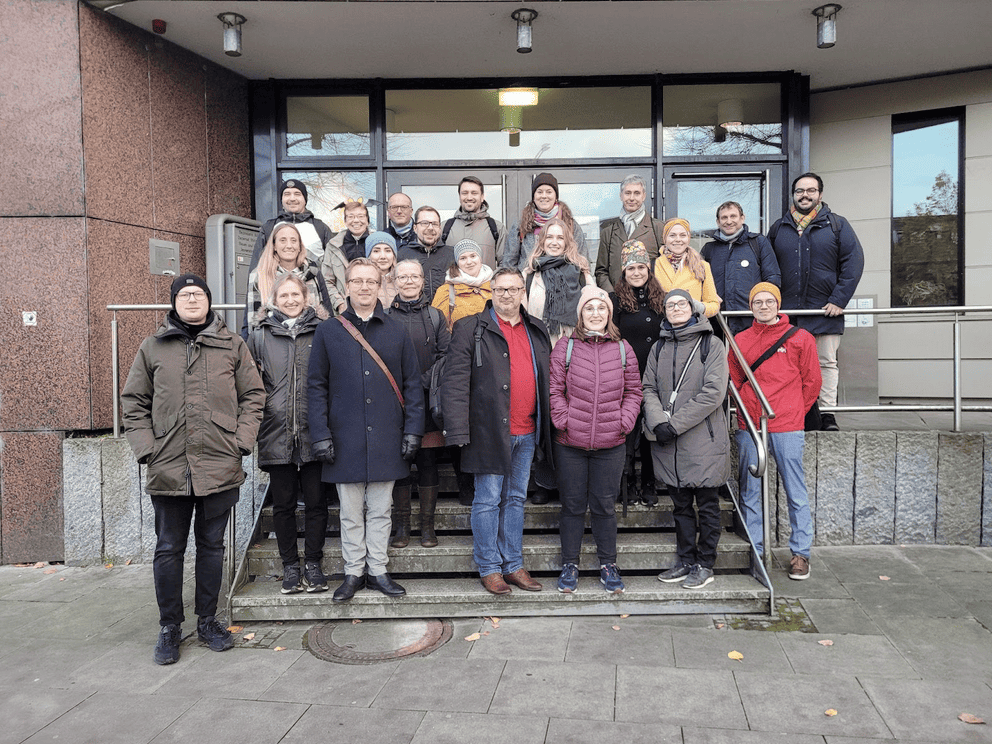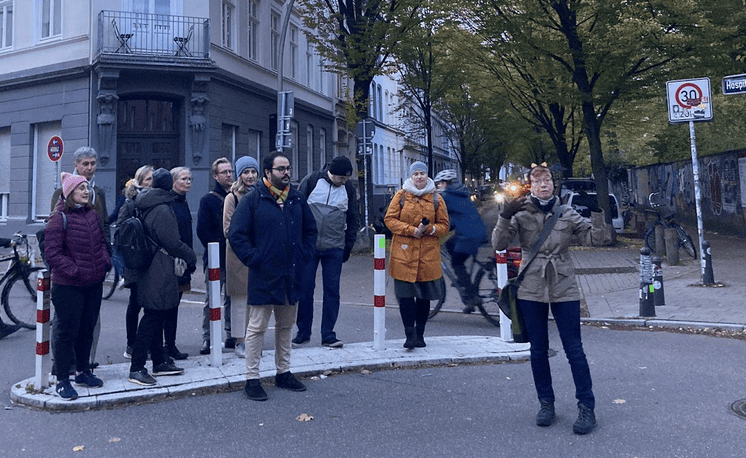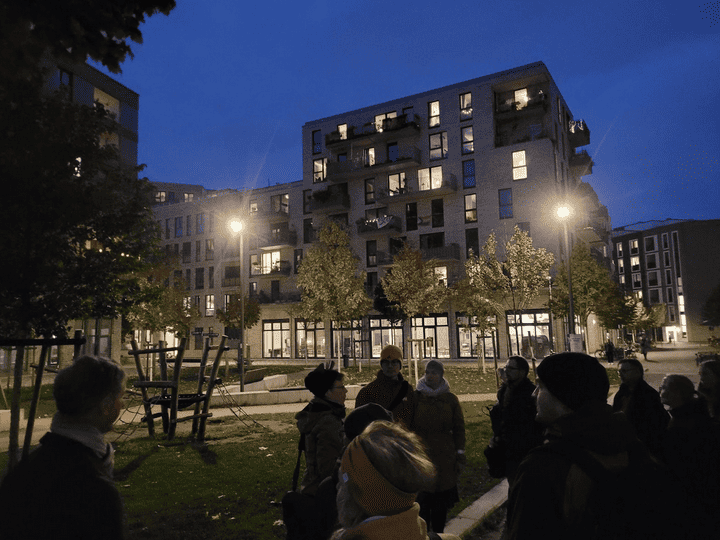
BATS-project kicks off to position active mobility as a year-round transport option
05 January 2024

BATS consortium at the kickoff meeting in Hamburg’s District of Altona
Authors: Heike Bunte, Camilla Sandberg, Dennis Martinez
Active mobility, namely cycling and walking, is central to promoting the transition to a more sustainable mobility system. However, the proportion of pedestrians and cyclists in our streets decreases sharply during the darker and colder months, while car dominance prevails throughout the year.
Led by Hamburg-Altona, the new Interreg Baltic Sea Region project BATS (Baltic sea region- Active MobiliTy Solutions – in darkness and all weather conditions) seeks to empower cities with the necessary insights and tools to shift urban planning towards “year-round active mobility” (YRAM), by flipping the traditional mobility planning script. Through transnational knowledge sharing and development, BATS will bring forth effective planning solutions to guide city council experts through this shift in mobility planning and help them integrate it to current practices.
In November 2023, the 12 partner organisations from across the Baltic Sea Region joined forces in Hamburg’s District of Altona to kick off BATS, a 3-year effort to return cycling and walking to the forefront of mobility.
Bringing together active mobility perspectives
Partners put on the hats of both cyclists and pedestrians, analysing the main problematics and insufficiencies in the current urban landscape. Another exercise helped in visualising different problem settings: rainy weather, dark afternoons, snowy winter paths, etc.
In the first half of the 3-day event, the partnership navigated different open presentations and workshops to bring together their current local knowledge onto a common table. City partners shared the active mobility challenges they have back home. For instance how to rethink car-oriented suburban developments, how to work with citizens to improve cycling and walking path maintenance in winter; and in general how to revert highly seasonal cycling tendencies.
University partners supported the discussion with rich presentations on the need to think systematically in the urban mobility planning field, the nuances of data for active mobility and behavioural frameworks to help activating citizens.

A tour of Hamburg-Altona, led by Heike Bunte
Reality check: the situation in Hamburg’s District of Altona
Lead partner Hamburg-Altona seized the chance of hosting the kickoff to highlight the state of active mobility in their district. The group spent an afternoon outside, participating in a guided tour focused on active mobility. This tour, led by Heike Bunte, showcased both positive and challenging aspects of the neighbourhood’s infrastructure and initiatives with regards to cycling and walking.
Altona has been taking great strides in the inclusion and promotion of active mobility, namely via its latest human-centric urban developments in which the car is but a guest. Additionally, the neighbourhood has adopted in many instances the implementation of low-investment high-impact measures to curb traffic and pacify its streets. The district hopes to ease these political processes and increase the uptake of active mobility throughout the year, using BATS as a vehicle of innovation and demonstration.
At the same time, Altona experiences several challenges to overcome: at an infrastructural level, innovative approaches to lighting and protective elements are needed for Altona’s bicycle paths. At a political level, efforts to reconfigure existing streets and spaces for active mobility are a bumpy path and require thorough engagement of multiple stakeholders.

The consortium continues their tour as darkness falls across Hamburg
What’s next for the partnership?
As with all projects, experience and knowledge need to be funnelled into concrete actions and products to exert real impact. BATS partners will operationalise its ambitions by developing 2 crucial solutions: a YRAM Technical Toolkit that helps planners to improve infrastructure and traffic systems for year-round use, and a Citizen Activation Guide for YRAM to help planners engage citizens in the benefits of walking and cycling in all seasons.
After three successful days of knowledge sharing, partners are decisive in taking the first steps of the journey towards mainstreaming a year-round culture of active mobility:
- Partners will divide into groups to more effectively start brainstorming on the nature of the Technical Toolkit and the Citizen Activation Guide. Public authorities are supported by the universities to craft evidence-based, practice-centred solutions.
- The BATS pilot partners will start organising the necessary preparations for their testbeds. Following the learning of Altona, low-investment high-impact interventions are very effective demonstrations to showcase the potential of active mobility.
In the months to come, partners will meet regularly to stay up to date and to keep sharing insights and knowledge. To ensure solutions are resilient and impactful for the entire Baltic Sea Region, partners will ensure rounds of mutual feedback.
Our BATS route directs us to northern Umeå (Sweden) for the second partner meeting in February 2024! Stay tuned to get a breath of (very!) fresh air into the reality of nordic populations with regards to active mobility!
Project partners: Free and Hanseatic City of Hamburg-District of Altona (DE), Umeå Municipality (SE), City of Lahti (FI), Municipality of Gdynia (PL), Kalundborg Municipality (DK), Klaipeda Public Transport Authority (LT), Union of Harju County Municipalities (EE), Gate 21 (DK), Swedish Cycling Advocacy Organization (SE), Aalto University (FI), Tallinn University of Technology (EE), Gdansk University of Technology (PL).





